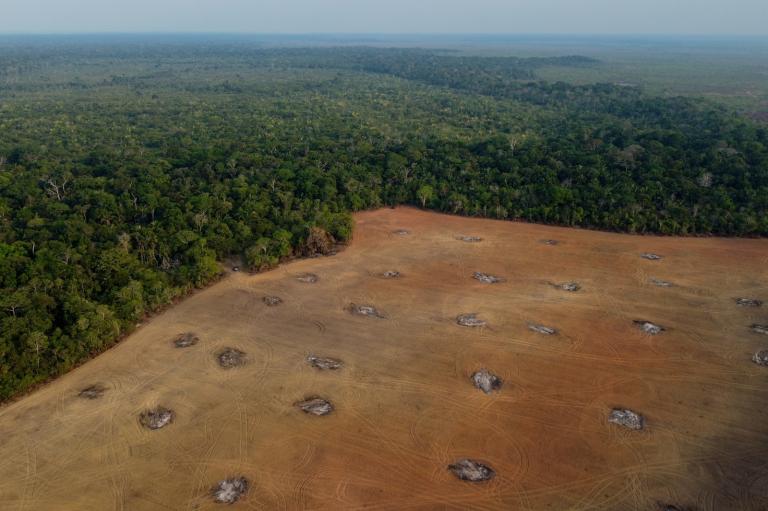I’ve always loved Amanda Little’s writing – and her news-breaking, hard-hitting interviews. But her latest incarnation as a “pro-drilling environmentalist,” while clearly well-meaning, is so divorced from the economic and political reality of oil that it deserves an open plea to escape what is clearly too much time spent in the barrel of Big Oil’s echo chamber. After all, to hear Amanda tell it, you’d think the folks at the Power Shift youth climate conference should be screaming “Drill Here, Drill Now” as their new green rallying cry – and that’s a sad future indeed for the environmental movement.
Amanda has two fundamental “environmental” arguments for expanding offshore oil drilling in the United States (taken from her website). First, echoing the arguments of GOP drilling advocates like Louisiana’s Bobby Jindal and David Vitter, she argues that keeping oil drilling close to home is better for the environment than exporting it to far away places with little regulation and lots of corruption:
If our coastlines are closed to oil development, and our demand continues unabated, the risks of offshore production will simply shift to the coastlines of Nigeria, South Korea, Kazakhstan, Angola and other oil-producing nations where environmental standards are extremely lenient, if they even exist.
At some level, I just want to shout, “Tell that to the turtles!” But let’s take a more dispassionate look.
What of it? Yes, it’s true that some other countries have laxer offshore oil regulations than the United States (though Brazil and Norway, two major offshore producers, have tighter regulations that, if in place here, may have actually prevented this disaster), and there have been spills overseas. But would shutting down offshore oil drilling here actually cause a corresponding spike in offshore drilling in environmentally lax countries?
No. The notion that the U.S. oil production that comes from offshore drilling would automatically transfer to other offshore drilling around the world is far-fetched. As I wrote in this Grist article about oil economics, any production decline is likely to be made up for not by expensive deepwater drilling in out of the way places, but rather by oil from conventional land based sources around the world – which remain way cheaper, more plentiful, easier to access, and easier to increase production from than offshore oil. Most of the world’s major easily accessible oil supplies are in giant reservoirs in the desert that have much smaller environmental footprints for every barrel of oil produced than drilling here, which requires poking a lot of holes in the seafloor or the Earth to get at relatively small quantities of oil scattered around our country. It’s a lot easier to ramp up production from conventional land based sources than go through the expense of drilling another deep-water well.
A broader point is that Amanda seems to ignore the zero-sum nature of the energy game. Every dollar we invest in oil is a dollar we’re not investing in clean energy and climate solutions like solar, wind, and ecological restoration – all of which create more than double the jobs as oil drilling per dollar of investment. Wells often operate for decades, at considerable expense – locking us into years of further reliance on polluting oil.
So that’s the economic justification for Amanda drawing herself a bath, getting a bottle of Dawn, and rinsing the oil propaganda off – but what about the politics?
Amanda sticks a toe into punditry and predicts that expanding the oil industry to more states will make it less popular. From her interview with PBS:
Think about it. If we started drilling off the East Coast and every time you flew out of Atlanta or every time you flew out of Charlotte or Washington, D.C. or New Jersey or Boston, wherever, and as you were approaching you could see oil rigs populating the coastlines and the risks associated with that, people would start saying “Oh, no, we don’t need that happening to our birds and our coastlines and our tourism industry and our fishermen and so forth and we all need to feel like we’re protecting our coasts. And unfortunately the populations along the Gulf of Mexico keep getting hit over and over and over again and I think once we start galvanizing other people, other populations along the East and West Coast and say, no, no, no, let’s stop this drilling, let’s find alternatives, let’s conserve, let’s use less, then, yes, you start attracting the groundswell of commitment.
Alas, Amanda is making a perspective error: she is confusing her reaction to oil rigs with the reaction of most Americans, and especially most politicians. Generally speaking, the more oil extraction there is in a state, the more popular it is and the more beholden the state’s politicians are to the oil industry. Think about it – who are Big Oil’s greatest champions? The senators from the big oil producing states like Texas and Louisiana.
Who are Big Oil’s greatest opponents? In general, the states without an oil industry have the politicians and people most vociferously opposed to its expansion (see New Jersey and its champions of coastal protection Frank Lautenberg, Robert Menendez and Republican! Governor Chris Christie – who criticized Obama’s expanded offshore oil proposal even before the BP spill). California might be an exception, but its economy is large and diverse enough that oil doesn’t actually play a major role as a percentage.
Of course, this phenomenon isn’t exclusive to the oil industry: Big Coal’s biggest backers are in coal states like West Virginia (as the appointment of the anti-cap Carte Goodwin to the US Senate makes painfully clear); Big Ag’s biggest backers are in ag states, and Wall Street’s biggest backers are from those states most dominated by the financial services industry.
I see the opposite psychological impact – when you get used to something, it becomes part of the landscape, and you forget the risks. Call it the Redburn Rule, after Herman Melville’s fictional recollection of his first climb up the mast-head in his novel Redburn, “I only held on hard
, and made good the saying of old sailors, that the last person to fall overboard from the rigging is a landsman, because he grips the ropes so fiercely; whereas old tars are less careful, and sometimes pay the penalty.”
The old tars – in this case the Gulf States – are paying the price for getting so used to offshore oil that they became insensitive to its risks – even cutting funds for oil spill response. Even when the catastrophe comes home and wrecks their economy and their natural heritage, it’s still hard for them to imagine an oil-free future – far from being the ones urging an end to drilling, their leaders can’t help but advocate more drilling.
More offshore drilling will just add to the number of oil addicts in our country and deprive future generations of Americans even the memory of what an oil-free coast looks like.
Amanda – think about that dark scenario and let me know. I hope you’ll come back from the industry’s hall of oil-streaked mirrors. Follow the path of The Orlando Sentinel’s Mike Thomas, another formerly pro-drilling journalist who bravely ate “crow deep fried in a barrel of light sweet crude” after the spill. Now the table is set for you.
If you still don’t have the appetite for that tasty meal, let’s debate at the time and place of your choosing. I’ll bring the Humble Oil Pie.
With love from the turtles…


